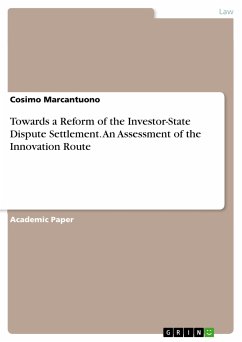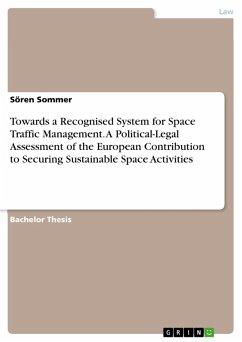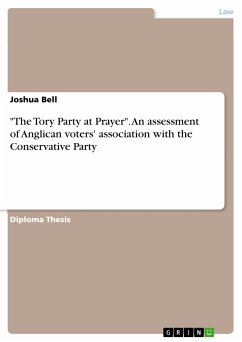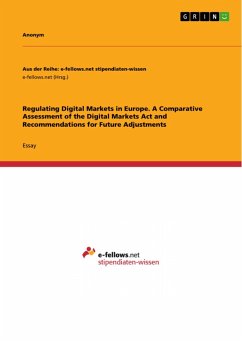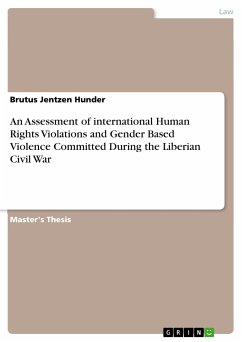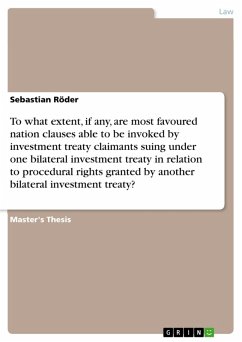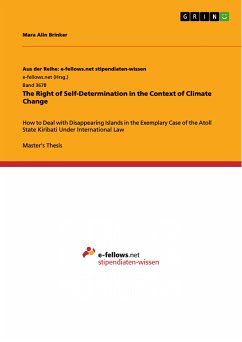Academic Paper from the year 2022 in the subject Law - European and International Law, Intellectual Properties, grade: 19/20, Leuven Catholic University, language: English, abstract: After a long journey, the Court of Justice of the European Union (CJEU) finally opened to an external system of judicial review. Indeed, despite the CJEU's historically notorious lack of openness towards an Investment Court System (ICS), a positive attitude was expressed in the opinion (C-1/17). This new attitude assumes a high degree of relevance in the discussions for a reform of the current Investor-State Dispute Settlement mechanism (ISDS), whose recursive criticalities will be by this paper investigated. In relation to the latter, the effectiveness of the proposed reforms will be analysed to contribute to the discernment as to which of the reform alternatives would be most effective. The analysis that will be carried out will begin by illuminating points of conflict with the interests involved in the current system. Consequently, the reforms proposed and currently being negotiated to resolve these issues will be analysed in order to (i) verify the manner in which they propose to offer a solution to the aforementioned criticalities; and (ii) assess which of the reform alternatives is best suited in terms of effectiveness and associated risks both in terms of coordination with the existing system and scope innovativeness. In framing the reform framework under negotiation, the analysis will devote particular attention to the debate on the most suitable of the alternatives between (i) the creation of a stand-alone court of appeal and (ii) the creation of a two-tier 'multilateral investment court' (MIC).
Dieser Download kann aus rechtlichen Gründen nur mit Rechnungsadresse in A, B, BG, CY, CZ, D, DK, EW, E, FIN, F, GR, HR, H, IRL, I, LT, L, LR, M, NL, PL, P, R, S, SLO, SK ausgeliefert werden.

